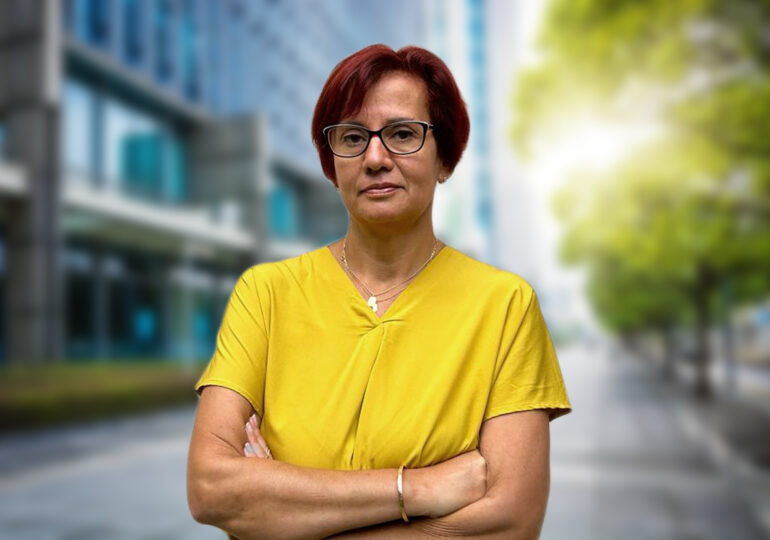The campaign that is nearing its end as if it had not even existed missed the essential, namely the debate of the main topics by the candidates. A spectacle of democracy has become a mimicry.
The European elections were completely overshadowed by the local ones, even though there are now on the agenda subjects of utmost importance for the citizen and their life.
Why Romania doesn't have much to say
At Europa FM, the former MEP REPER Dragoș Tudorache summarized them: the security situation and investment in security and peace, economic security and a new economic model, the new paradigm we live in, migration, agriculture, expansion policy, etc.
All of these are actually very close to the citizen's life and, equally, but paradoxically, are perceived as very far from their decision-making.
And this perception comes from the fact that decisions are made precisely by the people voted in now, either directly in the European Parliament or through the European Commission, a result of negotiations based on the election results.
However, the lists for the European elections are mostly either cushy positions for hopeful individuals or luxurious exile for dissidents who cannot be executed, the ones sent by Romania to the EP are not, with few exceptions, part of the debates and solutions because they have no clue about anything other than the allowances that go into their accounts. The proof can be found in the activity report of each at the end of their term.
We often vote for nullities who have no say, which is why Romania through them, yes, doesn't really have a say.
The only thing worth noting about the European elections was the bizarre story of Ms. Chiriac, for a few days the independent head of the joint list of PSD-PNL, and the way Mr. Tudose bent over backwards three times and became the independent social-democratic lady with a liberal profession or a liberal with a social-democratic profession (we still don't know which), whom Mr. Ciolacu announced as the opener of the joint list.
Mimicked democracy. Each with their own sect
The local elections were of real interest, which, however, did not make the campaign relevant and consistent.
The most visible, or more precisely should have been, was the campaign for the Mayor of the Capital, starting with the anthological episode of the joint candidate established on unknown criteria and withdrawn for unclear reasons and by whose decision, followed by the contradictory equation of separate candidacies for the PMB and joint ones for the sectors.
Another problem of the Capital, the largest, was the lack of a debate between the candidates. This is the first time something like this happens, except for the year 2020, which let's say was a completely atypical one not only in Romania, but worldwide.
Nicușor Dan, who in other years accused his opponents of cowardice for not wanting a debate, now announced that he does not want a debate except with the second in the polls, but he doesn't know who that is, Gabriela Firea only wants it in the presence of Nicușor Dan and without the two of them the debate was indeed irrelevant.
"Because I want to be consistent with myself. I said that, unfortunately, back in 2012, it was the last time we had elections. There are two rounds. Now, unfortunately, we have elections in a single round. In a single round, only the first two candidates matter, one vote. And that's what I told the people who support me or, well, the people who potentially support me. So I can't have a debate with someone who is in third or fourth place, because I would violate what I publicly stated," a sophisticated yet substanceless, slightly deceitful explanation.
Anyone can win the elections and none of the candidates has the right to make distinctions that only the electorate can make. Whoever is currently in second place can drop to the bottom of the list at any time, the electorate decides, not the leader of the rankings.
In fact, the incumbent mayor is advantaged by the lack of debate which, inevitably, especially when you are not a master of communication, involves risks.
But the debate in the campaign is not, as Cătălin Striblea also says, optional, it is not an option for the candidates, but a right of the voters.
The debate reveals the candidates like nothing else - what they have in their minds, what they have in their track record, what they have in their CV. Electoral debates are an extremely important and relevant component of democracy, the only one that can actually result in an informed vote.
To refuse a debate means to refuse democracy, and to support this refusal as a voter means to give up democracy for the sake of an option advantaged by this strategy.
This is also a consequence of Klaus Iohannis' tendencies, the first presidential candidate who refused an electoral debate with his opponent, even in the second round.
Yes, it was about Ms. Dăncilă, but no matter how much Mr. Iohannis despised her, the one he had appointed as prime minister, Ms. Dăncilă was not running as an individual. Behind her was a party with hundreds of thousands of members, two million votes in the first round.
And behind the mayoral candidates are some parties and a few hundred thousand signatures.
If Mr. Iohannis signaled that the support of some Romanians can be disregarded as a successful electoral strategy, the model caught on and was urgently replicated. The campaign became a series of parallel monologues, each candidate for their own sect, and the most numerous wins with the help of those who vote negatively.
But this only happens because since Iohannis onwards, the electorate has validated the model. While complaining about the democracy deficit, of course.

